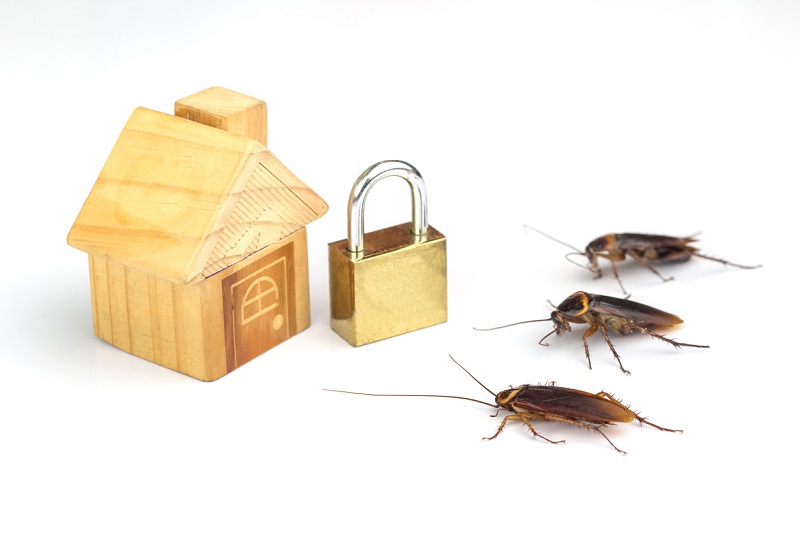As a property manager, you have a big responsibility when it comes to maintaining your rental properties. One of the most important aspects of this responsibility is ensuring that your properties are pest-free.
Pest infestations can cause all kinds of problems for tenants, including health issues, damage to their personal belongings, and overall discomfort. Who wants to sleep at night knowing their apartment is overrun with rats?
Not only that, but pests can cause damage to the property itself, decreasing its overall value.
The good news is that, as a property manager, you can take steps to prevent pests from infesting your rental properties and keep both your tenants and your investment safe.Here’s what you need to know.
Common Pests Found in Rental Properties Across the U.S.
Pests can not only lead to financial loss but also tarnish your reputation as a landlord. While it may not be easy to keep pests at bay, it’s important to be aware of the most common pests that tend to invade rental properties across the United States.
Cockroaches
Cockroaches are among the most common types of pests that invade rental properties. They are attracted to food, water, and warmth. You might start seeing them in your property’s kitchens and bathrooms.
They not only spread diseases but can also cause allergic reactions in some people.
Mice and Rats
Mice and rats are the top pests on any homeowner’s most-hated list. These rodents usually invade buildings during the colder months, looking for food and a warm place to stay.
Bed Bugs
Bed bugs are tiny insects that feed on human blood while you sleep. They are usually found in carpet edges, mattresses, and behind wallpaper.
Termites
Termites can cause significant structural damage to your rental property if they are not controlled in time. They are attracted to wet wood, paper products, and cardboard boxes. You should consider calling for professional help if you spot tiny wings on surfaces or hear hollow sounds from building structures.
Ants
Among all the common household pests, ants are perhaps the most persistent. When one discovers food, he tells his colony via a scent trail, and before you know it, you have dozens of ants marching toward it.
Tenant Responsibilities and Best Practices
As a property owner or property manager, there are certain things you’re responsible for – like calling in professional pest control should an infestation arise.
However, there are also some things that tenants need to deal with themselves when it comes to preventing and taking care of pests. Here’s a brief overview.
Proper Food Storage
One of the biggest attractants for pests is food. Tenants should store all food in sealed containers and keep their kitchen and dining areas clean of any crumbs or spills. This also includes storing pet food in airtight containers.
Garbage Disposal and Management
Proper garbage disposal is essential in preventing pest infestations. Tenants need to make sure their garbage bags are tightly sealed and placed in an outdoor bin with a tight-fitting lid.
Regular Cleaning and Organization
A clean and organized home is less likely to attract pests – they have fewer places to hide! Tenants need to regularly clean their homes (or hire a cleaning service to do it for them) and dispose of any clutter that may attract pests.
Proper Storage of Items
Again, pests love to hide in cluttered areas, so tenants need to make sure they properly store all items in their home. This includes clothes, shoes, books, and any other household items.
Inspection of Packages and Second-Hand Items
When tenants bring new items into their home, whether it’s packages or second-hand items like furniture, they need to inspect them thoroughly for any signs of pests. This includes checking for bed bugs in used furniture or clothing.
Reporting Property Maintenance Issues
Tenants need to report any property maintenance issues to the landlord promptly. This includes leaky pipes, cracks in walls, or any other issues that could lead to pest infestations.
Prompt Reporting of Pest Activity
While tenants aren’t necessarily responsible for calling in professional pest control, they are responsible for keeping an eye out for problems.
If tenants see any signs of pest activity in their home, such as droppings or pest sightings, they need to report it to the landlord immediately. The earlier the pest infestation is caught, the easier and less costly it will be to eradicate.
A Pest Control Checklist for Property Maintenance
Nobody wants to share their living space with unwanted guests such as rodents, termites, and bugs. Unfortunately, all too often, a home becomes infested with pests due to a lack of proper maintenance. Fortunately, you can prevent pests from invading your home by following a few key steps.
Sealing Cracks in Walls and Foundation
Small cracks in the walls and foundation of your home can lead to bigger problems, allowing pests to enter your home.
Take the time to inspect the foundation and walls of your home regularly. If you notice any cracks or holes, seal them immediately with a high-quality, silicone-based sealant.
Addressing Leaks and Clogs
Pests love damp places, and one common reason for damp areas is leaks and clogs. Fix any leaks and clear clogged drains in your home promptly to prevent water or dampness buildup.
Dehumidifying Damp Areas
High levels of humidity can lead to increased pest activity. It is always a good idea to invest in a dehumidifier to keep the levels of humidity in your home under control.
Basements and crawl spaces are particularly prone to high humidity, so keep these areas well-ventilated and consider using a dehumidifier.
Landscaping and Vegetation Management
Landscaping and vegetation management can have a significant impact on the likelihood of pest problems. Keep your lawn well maintained by regularly tending to it and promptly removing any piles of wood, leaves, or other organic debris that can create a haven for pests.
Gutter Cleaning
Clogged gutters can provide a breeding ground for pests like mosquitoes and attract other pests looking for a drink, like rodents, as they can hold stagnant water and rotting materials. It’s crucial to clean your gutters regularly to prevent such issues.
Pond and Pool Maintenance
If you have a pond or pool in your yard, make sure you keep it clean and maintained. Standing water can attract mosquitoes, which can carry diseases.
Pest-Repelling Landscaping
Your choice of landscaping can make a significant difference in deterring pests. For instance, plants like citronella, marigold, and garlic are natural insect repellents that can help keep pests at bay.
How Regular Property Visits Can Help You Maintain Your Pest Prevention Efforts
Ultimately, the best course of action to both prevent and eliminate pest problems on your rental properties is to be as vigilant as possible. Have eyes on your property and visit it often.
Regular property visits, along with pest control services, will let you keep an eye on potential pest hotspots and identify early signs of infestation.
At the end of the day, a clean, pest-free home is a happy, relaxing, and safe environment for you and your tenants.





